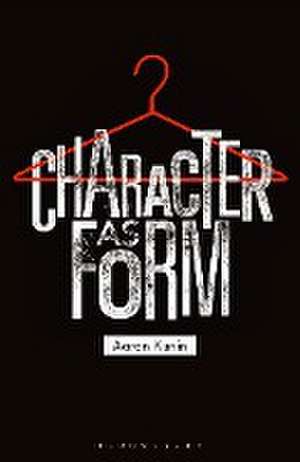Character as Form
Autor Dr Aaron Kuninen Limba Engleză Paperback – 6 mar 2019
| Toate formatele și edițiile | Preț | Express |
|---|---|---|
| Paperback (1) | 177.32 lei 3-5 săpt. | |
| Bloomsbury Publishing – 6 mar 2019 | 177.32 lei 3-5 săpt. | |
| Hardback (1) | 537.30 lei 6-8 săpt. | |
| Bloomsbury Publishing – 6 mar 2019 | 537.30 lei 6-8 săpt. |
Preț: 177.32 lei
Preț vechi: 206.69 lei
-14% Nou
Puncte Express: 266
Preț estimativ în valută:
33.93€ • 35.23$ • 28.30£
33.93€ • 35.23$ • 28.30£
Carte disponibilă
Livrare economică 04-18 martie
Preluare comenzi: 021 569.72.76
Specificații
ISBN-13: 9781474222723
ISBN-10: 1474222722
Pagini: 248
Ilustrații: 20 bw illus
Dimensiuni: 129 x 198 x 25 mm
Greutate: 0.27 kg
Editura: Bloomsbury Publishing
Colecția Bloomsbury Academic
Locul publicării:London, United Kingdom
ISBN-10: 1474222722
Pagini: 248
Ilustrații: 20 bw illus
Dimensiuni: 129 x 198 x 25 mm
Greutate: 0.27 kg
Editura: Bloomsbury Publishing
Colecția Bloomsbury Academic
Locul publicării:London, United Kingdom
Caracteristici
An innovative new study of the central concept of character in fiction and film
Notă biografică
Aaron Kunin is Associate Professor of English, Pomona College, USA. He is the author of two books of poetry, Folding Ruler Star: Poems (2005) and The Sore Throat and Other Poems (2010) and a novel, The Mandarin (2008).
Cuprins
Introduction1. Many is not more than one2. Banish the world3. What fiction means4. The wish to be an objectAcknowledgmentsWorks citedIndex
Recenzii
Idiosyncratic, often brilliant.
The extraordinary value of Kunin's book lies in his sensitivity to these aesthetic codes, to the way that artworks selectively augment and mute different aspects of their subjects. This is how content happens, and Kunin has an extremely good ear (and eye) for it.
Character as Form is a bracingly original study of narrative character.
Throughout, [Kunin's] analysis is acute and lucid.
Combine[s] moments of thoughtful close reading with a vast and eclectic corpus is impressive; perhaps its most useful and intriguing contribution is the notion that ideas of 'character' not only permeate and shape our engagement with fictional people but also underpin their engagements with each other.
The extraordinary value of Kunin's book lies in his sensitivity to these aesthetic codes, to the way that artworks selectively augment and mute different aspects of their subjects. This is how content happens, and Kunin has an extremely good ear (and eye) for it.
Character as Form is a bracingly original study of narrative character.
Throughout, [Kunin's] analysis is acute and lucid.
Combine[s] moments of thoughtful close reading with a vast and eclectic corpus is impressive; perhaps its most useful and intriguing contribution is the notion that ideas of 'character' not only permeate and shape our engagement with fictional people but also underpin their engagements with each other.
